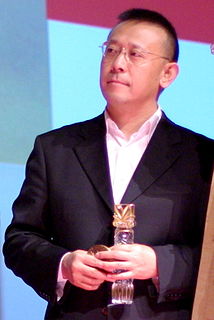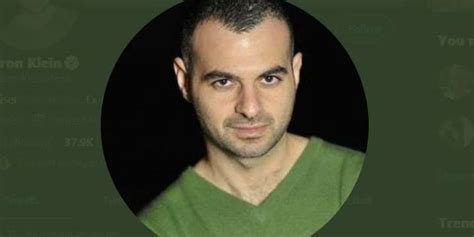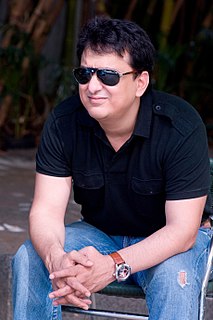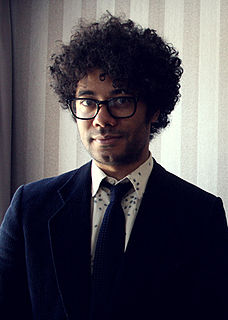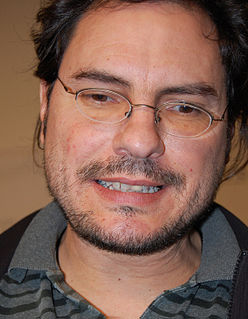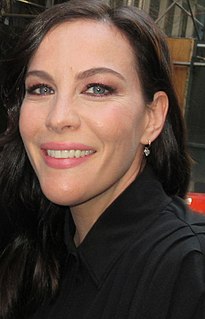A Quote by Jiang Wen
I think that as a director, especially when it comes to writing the script, which I also do, and I'm also the first one to visualize this story, I think contributing to the film industry means I'm able to take the best of a story and translate it well into a movie that can be released in theaters.
Related Quotes
Well, there's two things I have criteria for doing a film: The script, which is the story, and the filmmaker, and it's a filmmaker's medium. I like really strong directors, and so when I do a film, I'm out there to serve the director, really, which is in turn to serve the script, to serve the director cause he's the one making the film. I relied on Todd Haynes for that.
After I read the story of 'Dangal' and before the film released, I called director Nitish Tiwari asking him if he had any good script. He told me to wait for some time. So we had three-four sittings, and this film, 'Chhichhore,' came to him. The film did not have superstars, but I felt that this is the script that needs to be told.
I think Memento movie was hard because people didn't get it, they just didn't understand it. Not from the stage when we read the script and liked it. It's sort of a famous story now how we finished the movie and showed it to distributors and nobody wanted it. So it wasn't just they didn't get the script, they really didn't even understand the movie when it was done. But I think that was a particularly hard one. I don't think it was harder because we were girls, but I do think obviously there are particular challenges to working in a male-dominated industry.
With a good script a good director can produce a masterpiece; with the same script a mediocre director can make a passable film. But with a bad script even a good director can’t possibly make a good film. For truly cinematic expression, the camera and the microphone must be able to cross both fire and water. That is what makes a real movie. The script must be something that has the power to do this.
When I was writing the script, I knew didn't want to make a sports movie. I was very clear that I wanted to make a sibling rivalry story. So when I was writing the script, the football was getting in the way of the drama. One day, I saw Michael Haneke's Funny Games, which is probably the most violent film I've ever seen - but the violence is off camera. When I finished watching the film, I said, 'Hey, that's what I have to do.' Haneke gave me this solution.
You're in a movie, so you have to think about how something plays. It's not like you're thinking about how an audience is going to react. You're trying to present the story. You're trying to illuminate the lives of these people in the story. So I'm thinking about how my behavior as this character best illuminates what's going on with them in this moment in time. I always say it's sort of the director's job. People think that the directors direct actors. No. Really, what the director's doing is directing the audience's eye through the film.
If you're gonna tell a story from beginning to end, I always think you have to have a great structure in a script. If it gets you excited and it's something you've never read before that's another plus. I think also with improv and that whole world of stand-up, that's a whole other organism of comedy that still needs a story, but it's more free-form. On the set, it is the combination of both those worlds coming together: a great script and an allowance to play with it.
Working with Bernardo Bertolucci, director of Stealing Beauty was my first experience of being able to communicate with someone whom I'd think of as a mentor, who'd ask me my opinion and trust me, and believe in me and allow me to do the things that I wanted to do. The film itself was also rare in terms of character most of the scripts I've read are the story of some man, and there might be a love interest or a big woman's part.
Whenever I read a script or sign a film, I don't see whether he is a bad guy or a good guy. I see how much the character is contributing to the story? How much is the importance of the character in taking the story forward? And what new I would be able to learn and what new I would be able to try in that?
Would movie moguls release a film portraying Adolph Hitler as a great benefactor of the Jews? Hardly. Would they release a movie if the black community found it to be highly disparaging? No way. You better believe these executives would also think long and hard before they released a movie offensive to American Indians, Muslims homosexuals or virtually any affinity group. Yet, to most movie industries a film which offends millions of Christians is fine and dandy.
